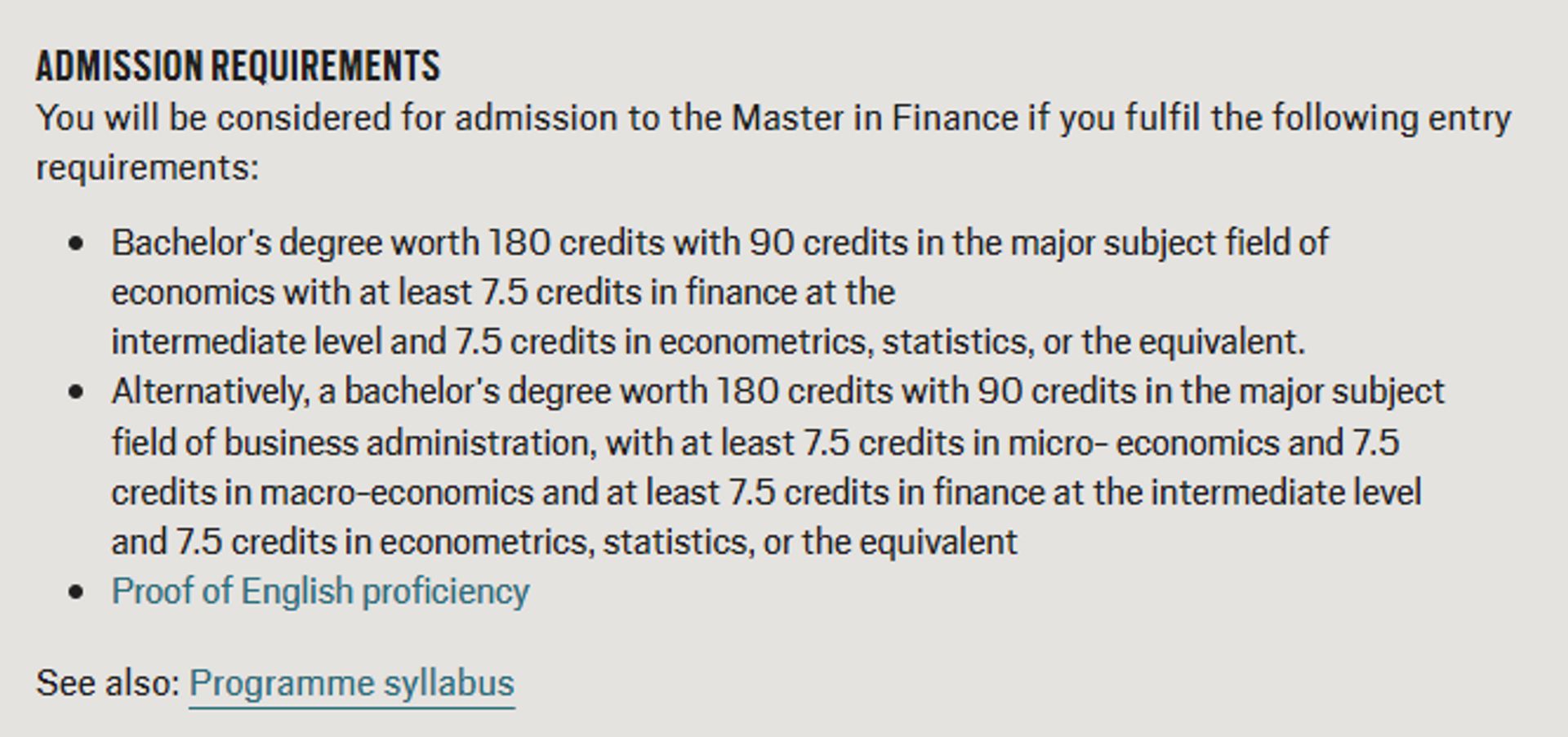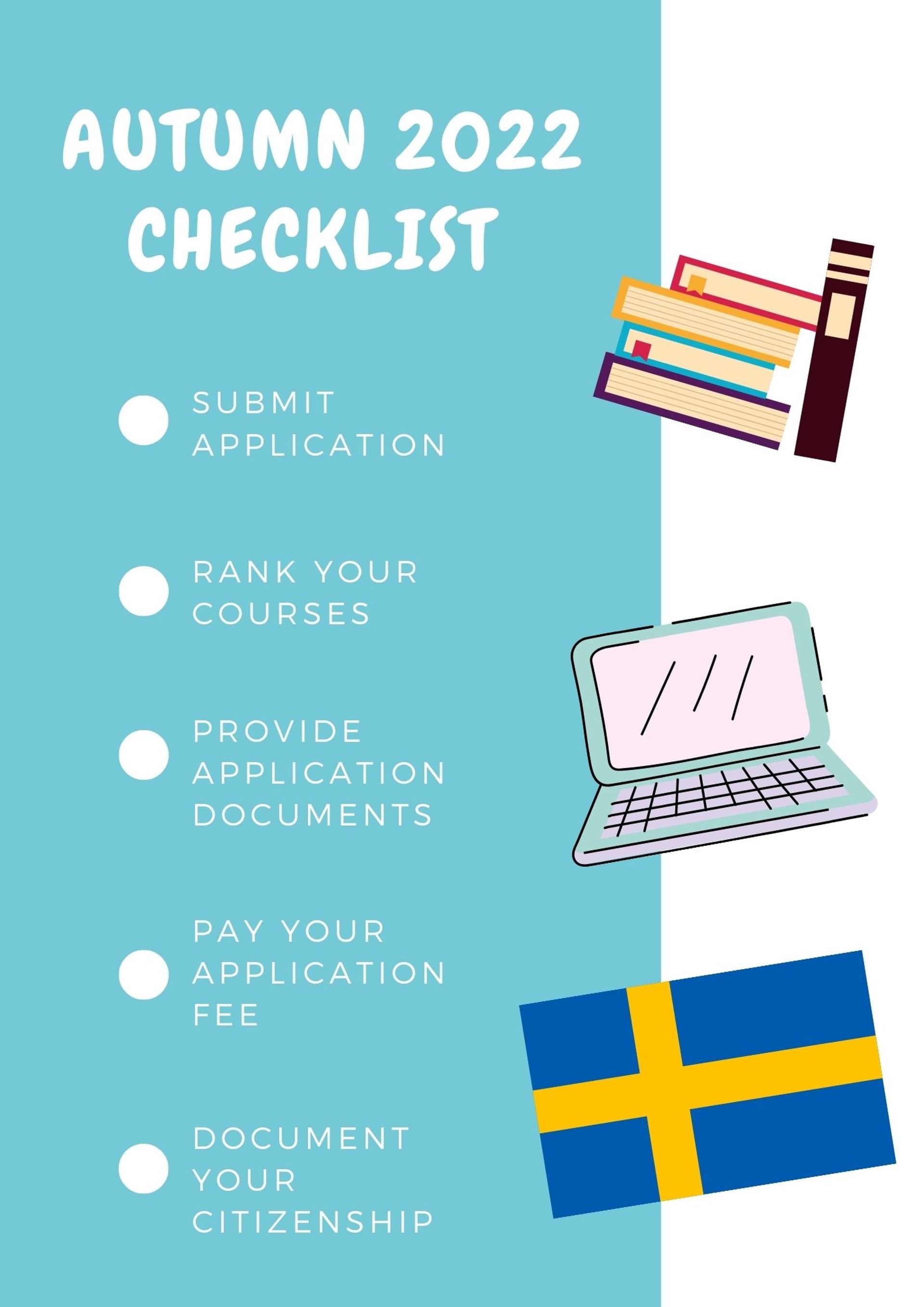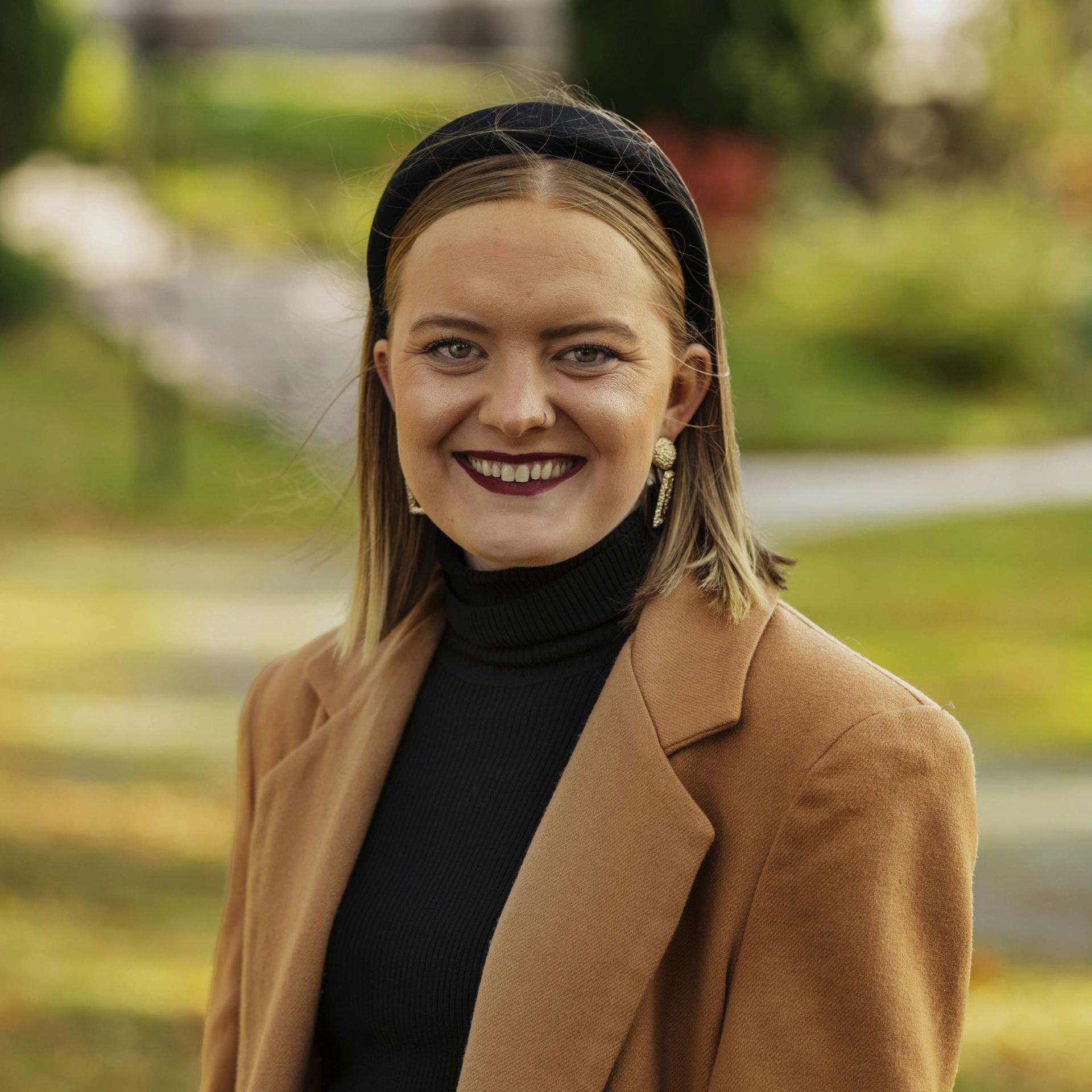
Written by Nozinhle
21 Jan 2022
Applying to study for a Master’s programme in Sweden is pretty straightforward. However, the application process can get overwhelming, and when that happens, it’s easy to make mistakes or overlook some critical information. When applying for Master’s programmes, it’s important to remember that you need to fulfill both the general and programme specific requirements.
General requirements ↗️ are those that you must meet no matter which programme you apply to. This includes proof of English proficiency and a Bachelor’s degree for those applying for Master’s programmes ↗️. To prove you meet these requirements, you must submit the general required documents, such as degree certificate, transcript, English test result, and passport.
There are also programme-specific entry requirements and these differ depending on the programme. As such, you also need to submit programme-specific documents that the programmes you apply for require. This is what this blog will focus on.
As the deadline for submitting supporting documents approaches, it is important to make sure that you include all the required documents to prove your eligibility for the programmes you applied to. This will help increase your chances of getting admitted. Here’s what you need to consider in order to meet the specific requirements of the programmes you applied to.
The key-word is specific
Different programmes have different requirements so the first place to start is to ensure that you check the university website and programme page. For example, some programmes may require that you submit a resume or motivation letter, but some do not. It’s important to check!
1. Credits
Most Master’s programmes require that you show proof of having attained a specific number of credits in a particular subject area in your previous studies. Not all programmes have this requirement, but some do. If required, it’s important to ensure that you provide proof of meeting the required credits through officially issued documents.
This is usually proved through a transcript. In some cases, you may need to submit the course syllabus. Make sure you read and understand what your specific programme requires. If you are unsure if the courses you have taken can be counted in the required subject area, you can always contact the programme office for clarity.

The credits are usually counted in European Credit Transfer System (ECTS) credits. For some programmes, you may need to convert the local credits in your documents to ECTS credits. In that case, the requirements state how you do this conversion, otherwise just contact the university and ask. If the programme doesn’t specifically write that you need to convert by yourself, it’s enough to present your transcript in your local credits and the admissions officers will do their math.
2. Reference Letters
Some programmes may require that you submit reference or recommendation letters. These are usually academic references, but some courses may need a work reference as well. Unless a specific format is requested, it is up to the referee to decide on the format and contents of the reference letter.
3. Motivation Letter
In some programmes, you may be required to submit a motivation letter, letter of intent, statement of purpose, or personal statement. In this case, you get a chance to express why you are interested in a particular programme and what you hope to benefit from it. You can also add any relevant practical or work experience you have as well as what you hope to achieve after your graduation. A motivation letter is a good way to show the admissions officers why you chose not just the university, but the programme as well. It is also a chance for you to explain why they should admit you into a particular programme.
4. Portfolio
It is common for programmes that have a large design component to require a portfolio of your previous work in their programme specific requirements. In such cases, the details of acceptable formats are provided and you can create your portfolio based on the set guidelines.
5. Bachelor’s Thesis
When applying for a Master’s programme, you may be asked to submit your Bachelor’s thesis. If it’s not in English, you will most likely need to provide an official translation of the thesis. Some programmes may only ask for the summary but others may ask for the entire thesis. If you didn’t do a thesis, you can contact the programme office and see if you can submit other academic work you conducted instead.
6. Resume/ Proof of Work Experience
Some programmes may require that you provide proof of work experience or a CV. Unless they give a template or specific guidelines, you can choose any format you want for the CV/ resume. If you are stuck on which format to use, you can try the Europass format↗️ which is widely accepted by most universities.
Important to note:
i. Submit the documents correctly
Make sure you submit the documents in the right way. Some programmes may have a template you must use, page or word limit, specific questions you must answer, or require that you submit a specific document directly to the university instead of University Admissions, or even via regular post. Follow the instructions. Unless specified otherwise, you only need to upload the documents in your application at universityadmissions.se.
ii. Country-specific requirements
There are some special documents you may need to submit too depending on where you are from or where you studied before. For example, students from some countries need to send a few specific documents via post. Make sure to check the country-specific instructions↗️.
iii. Name your documents clearly
Make it clear which document is for which programme. All the universities get access to all the documents you upload at universityadmissions.se. Since the admissions officers have a large amount of applications to evaluate, you will make the evaluation easier both for the admissions officers and yourself, if you make it clear in the file name and also in the file which document it is and which programme it is for.
iv. Unless asked to, don’t include it
It may be quite tempting to include some documents that you feel will increase your chances of getting admitted but, unless it is specified as a required document, do not include it! Admissions officers will only look at the requested and relevant documents. So, it’s best to stick to the required documents only.
All the best in your application. Till next time, hej då!






